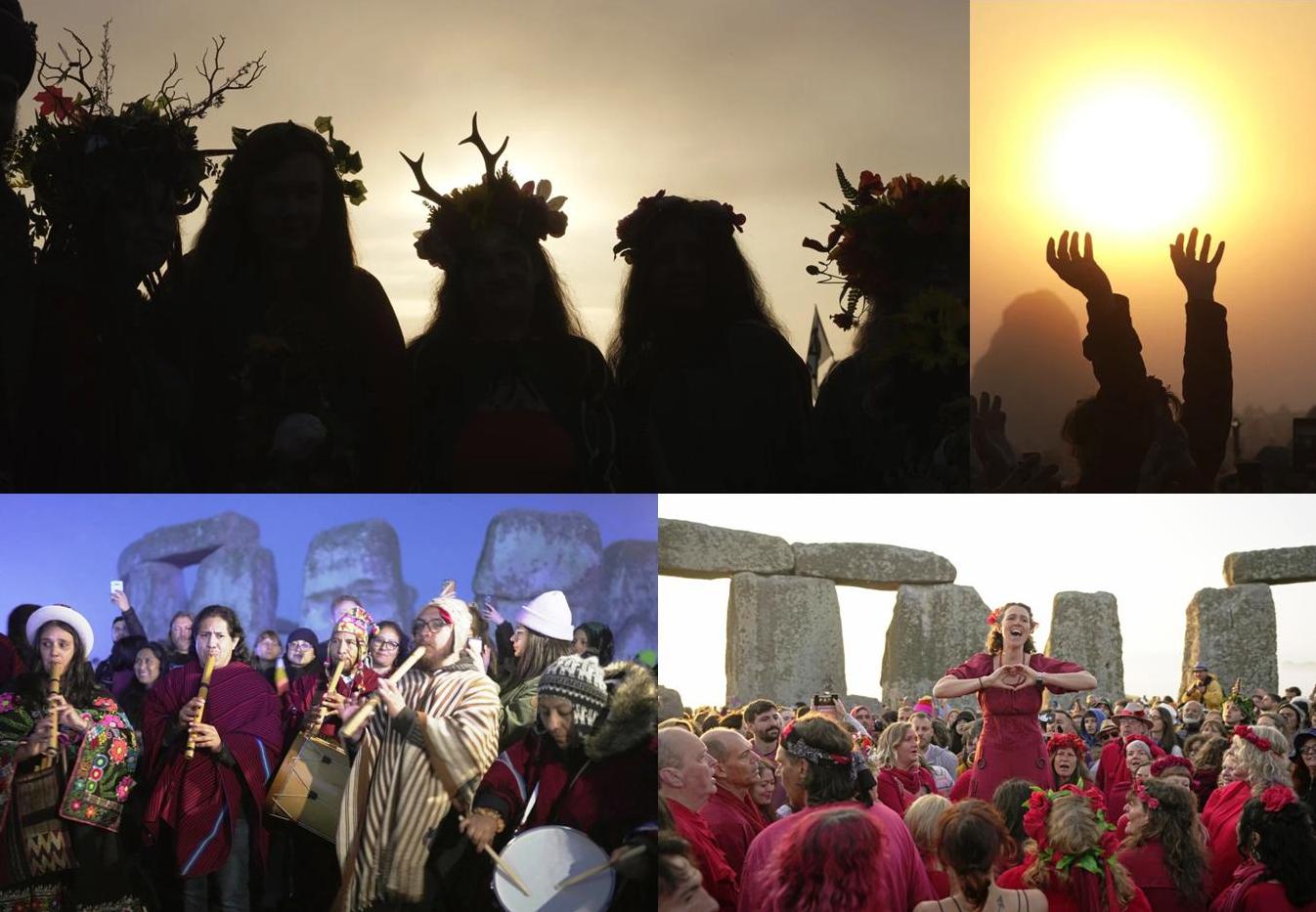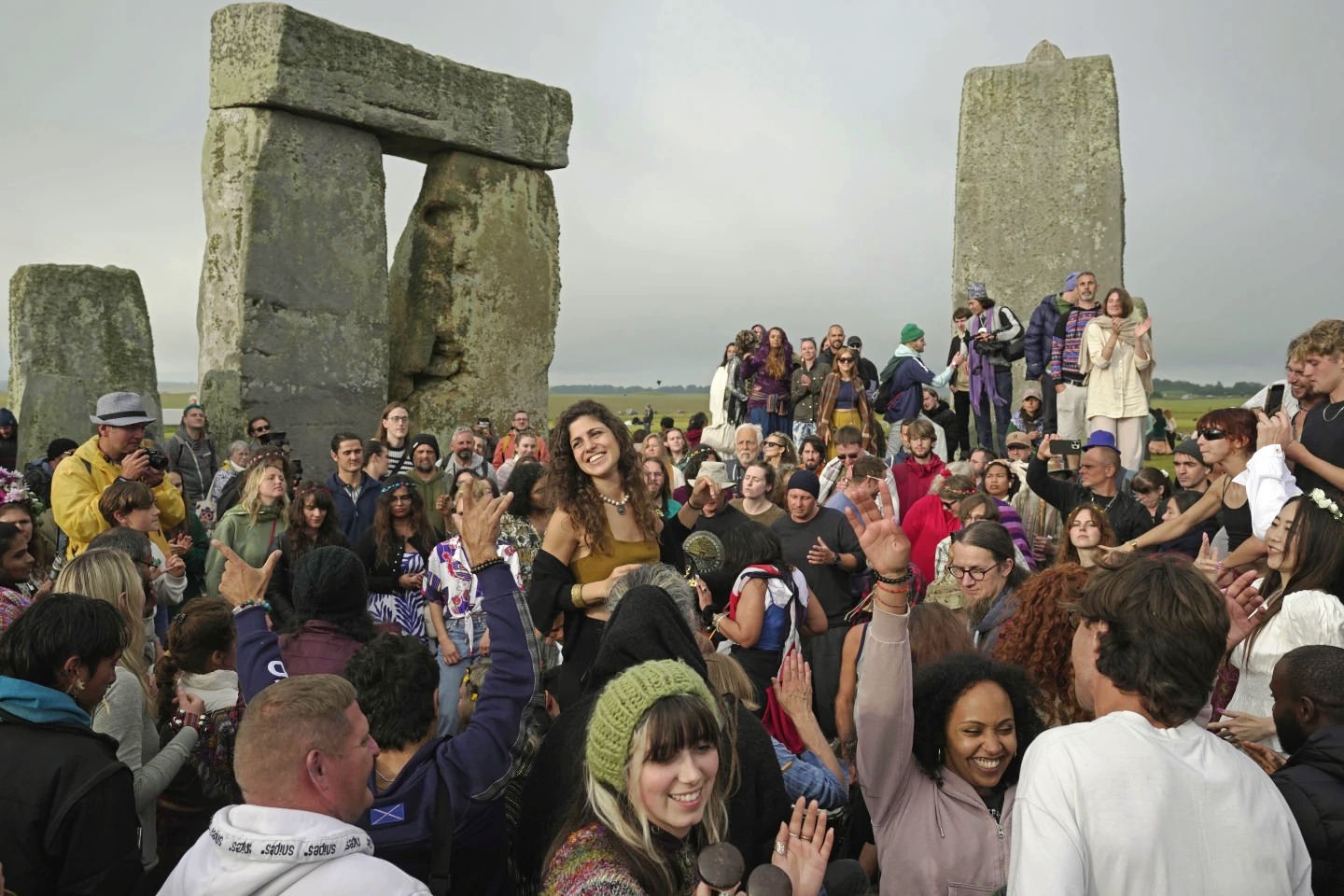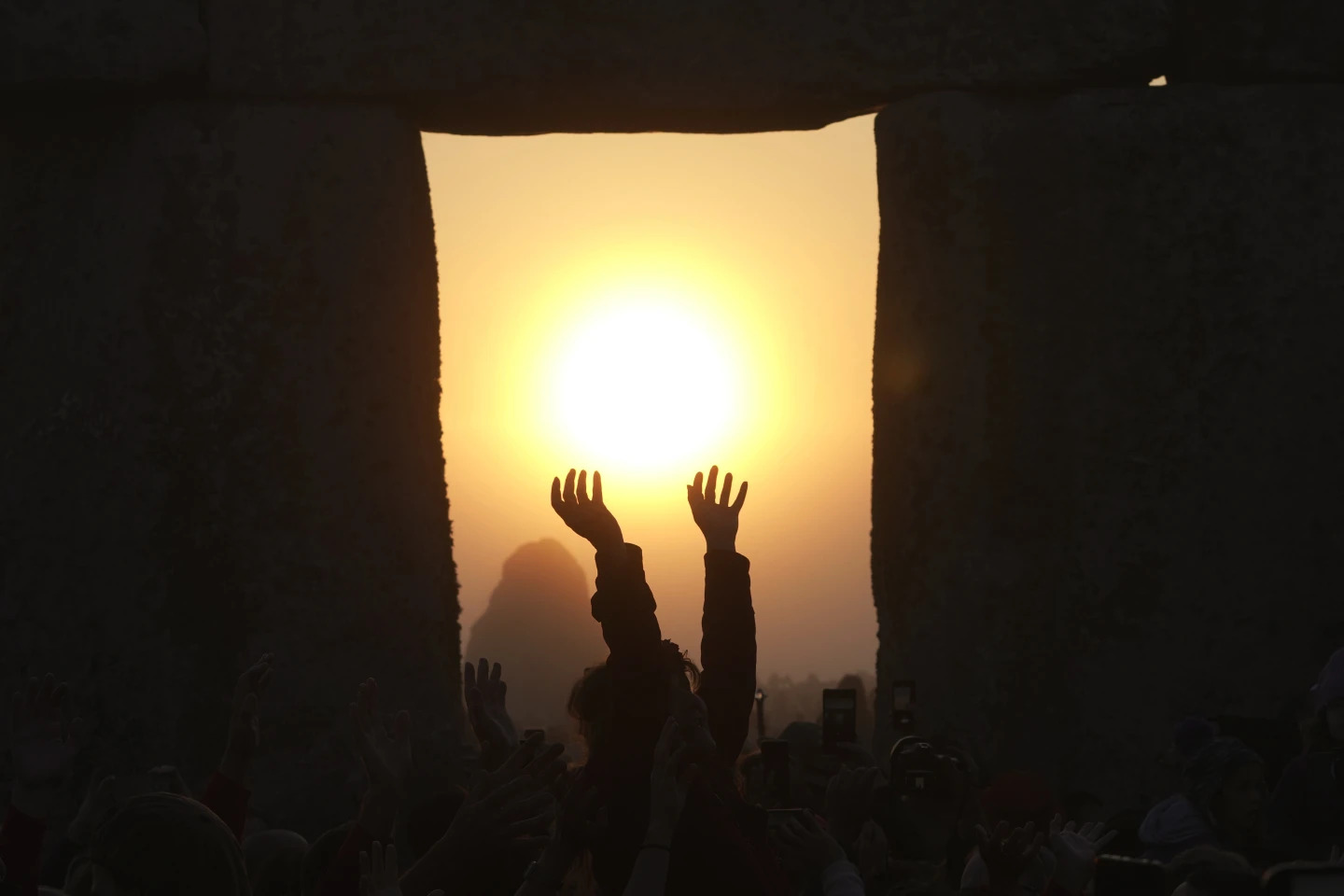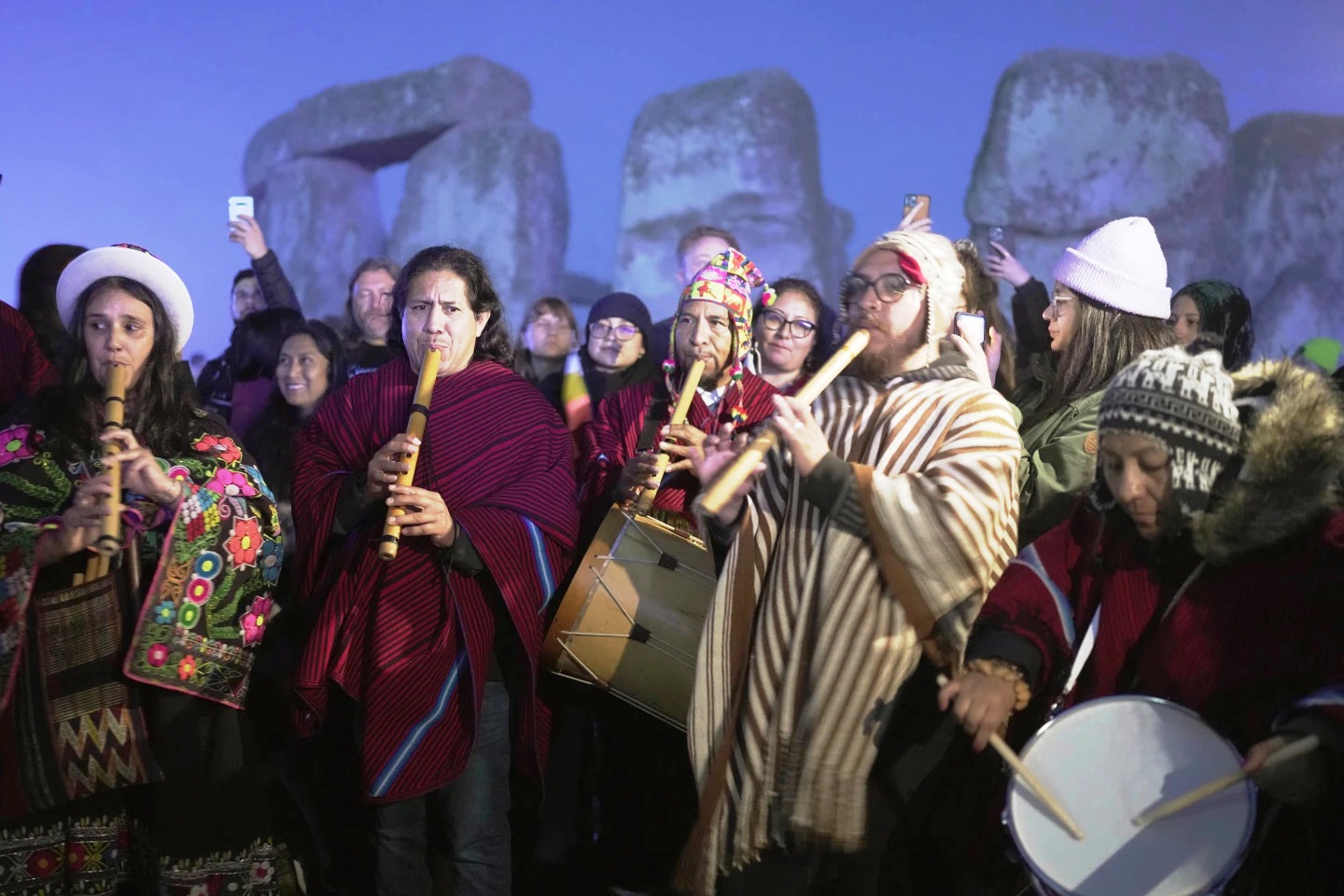
The summer solstice is an astronomical event that occurs each year and marks the longest day of the year. It refers to the sun’s position in the sky as it reaches its highest point. The sun was revered by ancient pagans as the supreme deity and the source of all life. Festivals, food, dance, prayers, music, and rituals were used to honor the sun. This is the origin of Sunday worship. The Roman solar deity Sol Invictus, also known as the “Unconquered Sun,” was revered in the Roman Empire. The cult of Sol Invictus emerged as part of the religious life of the Roman Catholic Church when the sanctity of Saturday was transferred to Sunday as the new day of worship.

Sun worship is still practiced today, not only in traditional Sunday-keeping churches but also in neo pagan rituals. On June 20, 2023, the Associated Press reported that 8,000 people had gathered to worship the sun on this year’s summer solstice. We read the following from the report:
“All hail the rising sun. Around 8,000 revelers gathered around a prehistoric stone circle on a plain in southern England to express their devotion to the sun, or to have some communal fun. Druids, pagans, hippies, local residents and tourists, many clad in an array of colorful costumes and even antlers, stayed and celebrated at Stonehenge for the night and greeted sunrise on Wednesday, which is the longest day in the Northern Hemisphere.” [1]

God has something to say about the pagan practice of worshipping the sun on the day of the sun:
“And he brought me into the inner court of the LORD’S house, and, behold, at the door of the temple of the LORD, between the porch and the altar, were about five and twenty men, with their backs toward the temple of the LORD, and their faces toward the east; and they worshipped the sun toward the east. Then he said unto me, Hast thou seen this, O son of man? Is it a light thing to the house of Judah that they commit the abominations which they commit here?” Ezekiel 8:16, 17.
Sunday was not merely one of the many pagan customs in the times of ancient Israel; it was an antichristian practice for the early church. In a very special sense, Sunday was a mark or symbol of apostasy. It stands in direct opposition to the Decalogue and the seal of the living God. After hundreds of years of gradual apostasy, the church was led to adopt a type of paganized Christianity. The man of sin exalted himself above God by claiming to have the power to change divine law, God’s 4th Commandment of the Moral Law. Today, almost the entire world has accepted the counterfeit. Sunday has indeed become the mark of papal apostasy.

“In the early part of the fourth century, the emperor Constantine issued a decree making Sunday a public festival throughout the Roman Empire. The day of the sun was reverenced by his pagan subjects, and was honored by Christians; it was the emperor’s policy to unite the conflicting interests of heathenism and Christianity. He was urged to do this by the bishops of the church, who, inspired by ambition, and thirst for power, perceived that if the same day was observed by both Christians and the heathen, it would promote the nominal acceptance of Christianity by pagans, and thus advance the power and glory of the church” (Great Controversy, p. 53).
“The arch-deceiver had not completed his work. He was resolved to gather the Christian world under his banner, and to exercise his power through his vicegerent, the proud pontiff who claimed to be the representative of Christ. Through half-converted pagans, ambitious prelates, and world-loving churchmen, he accomplished his purpose. Vast councils were held, from time to time, in which the dignitaries of the church were convened from all the world. In nearly every council the Sabbath which God had instituted was pressed down a little lower, while the Sunday was correspondingly exalted. Thus the pagan festival came finally to be honored as a divine institution, while the Bible Sabbath was pronounced a relic of Judaism, and its observers were declared to be accursed” (Great Controversy, p. 53).

Sources
[1] https://apnews.com/article/summer-solstice-stonehenge-450a49c871fc97dbb81863edef67f187
Blasphemy.
This is what Baal worship looked like in the times of the Old Testament. Where is Elijah today!!???
We are the watchman on the wall… we follow God individually and so we can’t wait for another to do that which is our duty to do. God has a people, we just have to wake up and warm up!!